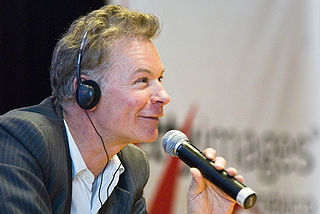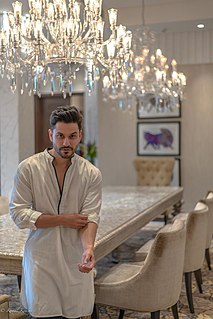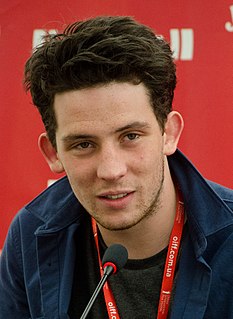A Quote by Anton Yelchin
And also, that's the kind of wonderful thing about film culture, is the interaction between films and who works on what, where they were before, and now what they're doing now, and that inevitably informs how people view a film.
Related Quotes
What's nice about writing and making films is that being able to see a film from the outside - from the inception through production and then completion - just informs what you're doing when you're an actor. And when you're an actor, it informs the decisions you make when you're making a film. It's using two different sides of your personality.
The first thing I say when people ask what's the difference [between doing TV and film], is that film has an ending and TV doesn't. When I write a film, all I think about is where the thing ends and how to get the audience there. And in television, it can't end. You need the audience to return the next week. It kind of shifts the drive of the story. But I find that more as a writer than as a director.
I found the people to be very kind and generous. It was unique because the crew was mainly Ugandan [filming The Last King of Scotland]. They had never done a film before. So, they were learning the process of making films, but at the same time they were also helping with the authenticity of the film.
Different directors have different techniques in the use of films. Cronenberg is very different in the way he works with film, and how he takes the audience into his films is different than how Peter Jackson would do that or Jon Stewart. So, if you go between those artists, you shift gears and you kind of fall into the working method of that film.
Many things have changed in our culture here in England as a direct result of the Pistols: the whole street-fashion thing in London, for example, or the coverage of popular culture in the national press, or the fact that the film industry is now about young people making films about young British issues.
I think a very good movie director makes films to entertain people, but not to be considered like they were Cervantes, you know? One of the biggest problems now, with all the festivals and everything, is a confusion between the quality and the beauty and the highness of things. A film is a film. It's something to entertain you a couple hours. Not to be considered as if it were Shakespeare.
I can't tell you why I choose stuff, it's really something I don't analyse. The only thing I can say is that a film has to demand to be made, I don't have a plan of what films I'm going to make. The only thing that I know now is that I'm not too crazy about doing things again that I've been into before.
People talk about the difference between working on stage and working on film. I think you could say that there are as many differences between working on low budget films and working on big budget films. You really are doing the same thing, but at the same time you're doing something vastly different as well.
I laugh a lot in horror films. If I'm scared in a horror film, I try to think about what's scaring me... particularly, if it's a bad movie, but something they're doing still works. It's the same way I look at comedy. I've always had an intellectual view of comedy, and what makes people laugh, and how does it work.
With The Exorcist we said what we wanted to say. Neither one of us view it as a horror film. We view it as a film about the mysteries of faith. It's easier for people to call it a horror film. Or a great horror film. Or the greatest horror film ever made. Whenever I see that, I feel a great distance from it.



































